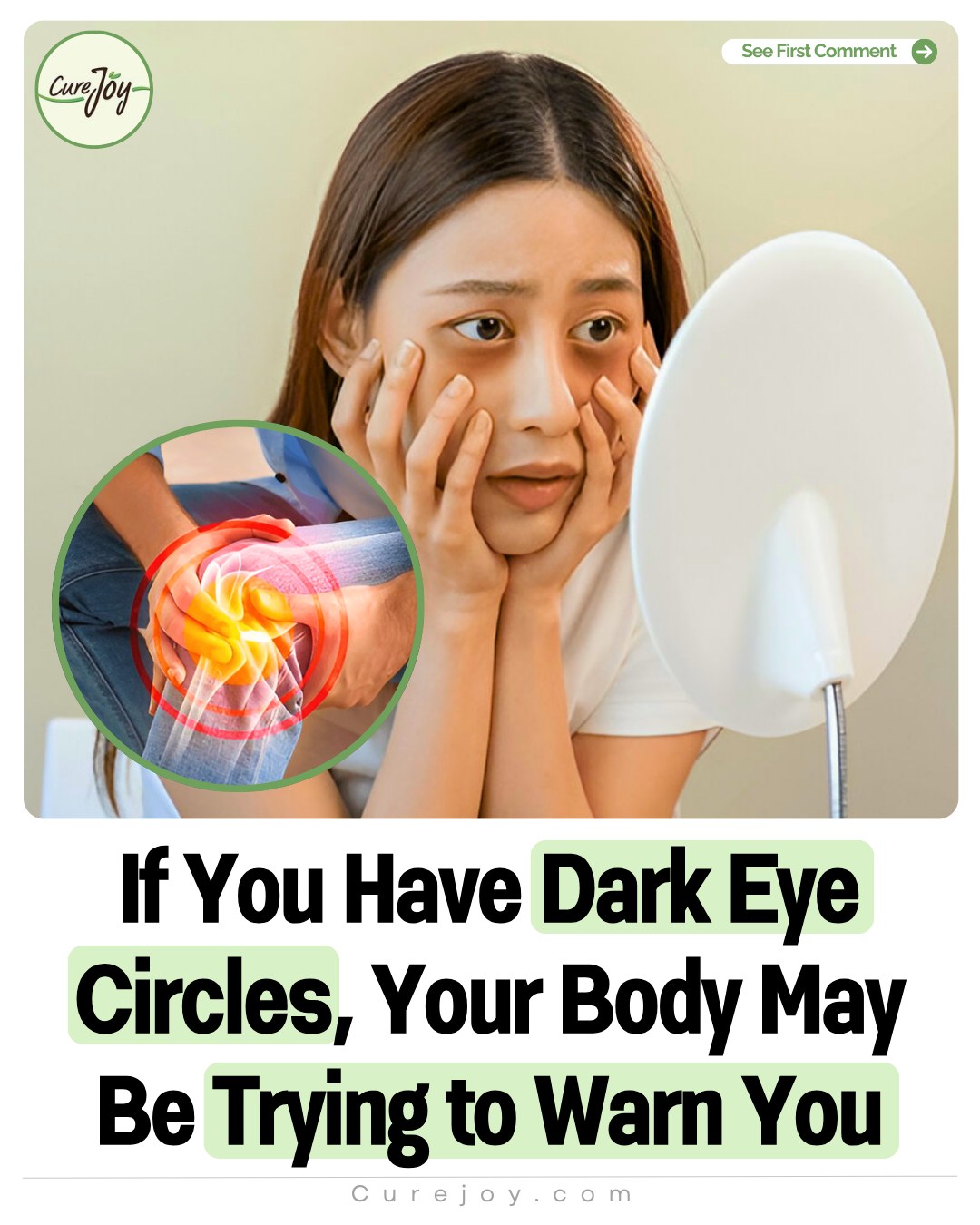Ever caught a glimpse of yourself in the mirror and noticed those pesky dark circles under your eyes? While often brushed off as simply a sign of fatigue, dark eye circles might actually be your body’s subtle way of waving a red flag. Let’s dive into what those circles could be telling you and what you can do about them.
What Are Dark Eye Circles, Really?
Dark eye circles are the darkening of the skin beneath the eyes, giving the appearance of shadows. They can range in color from slightly bluish or purplish to brown or black, depending on your skin tone and the underlying cause. It’s important to differentiate between temporary shadows caused by things like lack of sleep and more persistent discoloration that signals something else.

Common Causes vs. Underlying Issues
Many factors can contribute to the formation of dark circles. Common culprits include:
- Lack of Sleep: The most well-known cause, sleep deprivation can make skin appear paler, highlighting blood vessels and dark tissues beneath.
- Genetics: Sometimes, it’s simply in your genes. If your family members have dark circles, you’re more likely to develop them.
- Age: As you age, your skin loses collagen and becomes thinner, making blood vessels more visible.
- Eye Strain: Staring at a computer screen for extended periods can strain your eyes and enlarge blood vessels around them.
However, persistent or unusually dark circles might indicate underlying health issues that warrant attention.

Dark Eye Circles: Potential Health Warnings
When dark circles are more than just a temporary cosmetic concern, your body might be trying to tell you something about your overall health. Here are some potential health warnings that could be linked to persistent dark circles:
Iron Deficiency (Anemia)
Iron deficiency, or anemia, can cause the skin to become pale, making the blood vessels under the eyes more visible and prominent. This can lead to the appearance of dark circles.
- Symptoms: Fatigue, weakness, pale skin, shortness of breath, dizziness, and headaches.
- What to do: Consult your doctor for a blood test to check your iron levels. Increasing your iron intake through diet or supplements might be recommended. Iron-rich foods include lean meats, beans, spinach, and fortified cereals.

Dehydration
Dehydration can make your skin appear dull and sunken, accentuating the dark circles. The delicate skin around your eyes is particularly susceptible to dehydration’s effects.
- Symptoms: Thirst, dry mouth, infrequent urination, dark urine, dizziness.
- What to do: Drink plenty of water throughout the day. Aim for at least eight glasses. Avoid excessive caffeine and alcohol, which can contribute to dehydration.
Related article: Staying Hydrated for Healthy Skin

Allergies
Allergies, both seasonal and food-related, can trigger inflammation and histamine release in the body. This inflammation can cause blood vessels under the eyes to dilate and darken, leading to allergic shiners, which look like dark circles.
- Symptoms: Sneezing, runny nose, itchy eyes, congestion, skin rashes.
- What to do: Identify and avoid allergens. Consider using antihistamines or allergy medications as prescribed by your doctor.

Eczema and Dermatitis
Skin conditions like eczema and dermatitis can cause inflammation and irritation around the eyes. Constant scratching and rubbing can damage the skin, leading to hyperpigmentation (darkening of the skin) in the area.
- Symptoms: Itchy, dry, inflamed skin, often with a rash.
- What to do: Avoid scratching. Use gentle, fragrance-free moisturizers. Consult a dermatologist for appropriate treatment options, which may include topical corticosteroids.

Thyroid Issues
Although less common, thyroid problems can sometimes manifest as dark circles. Hypothyroidism (underactive thyroid) can cause the skin to become pale and puffy, potentially emphasizing dark circles. Hyperthyroidism can also contribute to fatigue and sleep disturbances, exacerbating dark circles.
- Symptoms of Hypothyroidism: Fatigue, weight gain, constipation, dry skin, sensitivity to cold.
- Symptoms of Hyperthyroidism: Weight loss, rapid heartbeat, anxiety, sweating, difficulty sleeping.
- What to do: If you suspect a thyroid issue, consult your doctor for a blood test to assess your thyroid function.

What Can You Do About Dark Eye Circles?
While addressing the underlying cause is essential, there are also steps you can take to minimize the appearance of dark eye circles.
- Get Enough Sleep: Aim for 7-9 hours of quality sleep each night.
- Stay Hydrated: Drink plenty of water throughout the day.
- Apply Cold Compresses: Reduce swelling and constrict blood vessels.
- Use Topical Creams: Look for creams containing vitamin C, vitamin K, or retinol to brighten the skin.
- Consider Cosmetic Procedures: In some cases, procedures like laser resurfacing or fillers might be considered to address dark circles. Always consult with a qualified dermatologist or cosmetic surgeon.

Conclusion
Dark eye circles are often more than just a beauty concern; they can be a subtle indicator of underlying health issues. While common causes like lack of sleep and genetics play a significant role, persistent dark circles might signal iron deficiency, dehydration, allergies, skin conditions, or even thyroid problems. Pay attention to your body, address any underlying health concerns, and adopt healthy lifestyle habits to minimize the appearance of dark circles and promote overall well-being. If you are concerned, consult with your doctor for a thorough evaluation and personalized advice. Don’t dismiss those dark circles – listen to what your body is trying to tell you!
